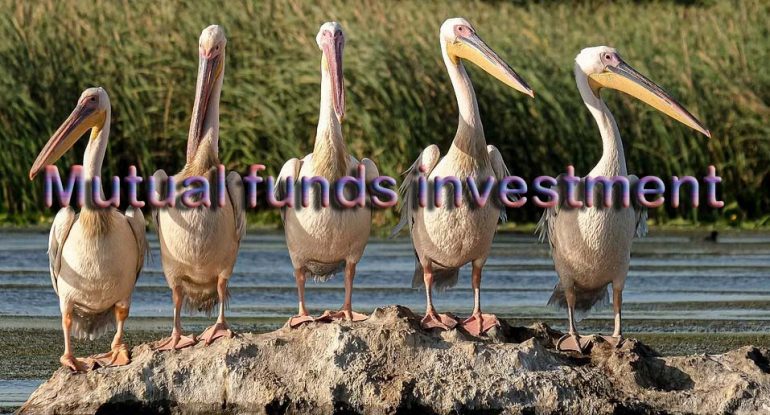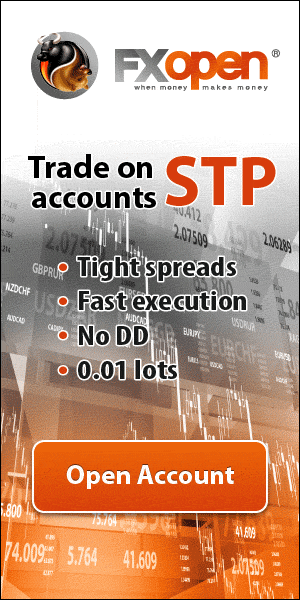Mutual funds investment

For those of you who are already involved in the investment world, of course, you already know or at least have heard of the types of mutual funds investment.
Mutual fund investments are managed by a fund manager, which will be cycling investors’ money into investment products with low-risk returns.
In contrast to the forex which provides high returns but also high risk. Mutual funds are safer from risk but with lower returns.
Investors who like to play it safe can choose mutual fund investment products, while investors who like high risk with high returns, forex are a challenging choice.
![]() Best TenkoFX broker.
Best TenkoFX broker.
Good forex Brokers with positive feedback of reviews from users and are regulated by IFSC Belize
Open an account or try a Demo account.
Mutual Funds Explained
Mutual funds are an investment in which the management of funds and capital comes from a group of investors who invest in investment instruments available in the capital market by buying mutual fund units.
The fund will also be managed by the Investment Manager to be invested in investment portfolios, such as stocks, bonds, money markets, and others.
The mutual fund investment manager will diversify its investment into various instruments, not only concentrating on one investment product. For example, a stock mutual fund must invest in various companies and not only in one stock.
It aims to maintain the financial portfolios of mutual funds which are investors’ money. In this case, the investor pays the service fee to the investment manager. There is a minimum qualification standard set by the regulator to become an investment manager because of the strategic role of the investment manager.
In offering prospective investors, an investment manager prepares a document called a prospectus in which important matters are explained, namely investment policies, legality, and other supporting parties, such as custodian banks, accountants, and law firms.
How Mutual funds work
Basically, mutual funds are investing your money in a portfolio that contains a collection of investment instruments and entrust the portfolio to be managed by a professional Investment Manager.
So, investors don’t manage their own money directly. But there is already a professional investment team to help manage your funds.
How does it work is:
- Investment Managers raise funds from investors.
- The total funds that have been collected are then invested in several investment instruments, such as money markets, bonds, and stocks, according to the agreement with the customer.
- Customers receive investment reports from MI regarding the funds they invested periodically. In general, the report contains product performance, set composition, and securities portfolio.
- The Investment Manager deducts operating expenses in the form of an expense ratio that will have to be paid by the customer.
So if you buy a mutual fund, you are pooling your money with other investors’ money. In this mutual fund, you buy a unit or part of the fund. When the number of investors increases to invest, the mutual fund issues new units or shares.
Thing to know
Important terms that you need to know are Net Asset Value (NAV) and Participation Units (UP). Because mutual fund transactions are processed based on the NAV per UP which is informed through the media. However, one thing that is often wrong is that people think NAV is the price of a mutual fund.
In fact, this NAV is some funds managed in mutual funds. NAV is also broken down into investment instruments. Meanwhile, those that are managed by mutual funds are known as Participation Units (UP).
Apart from how mutual funds work, you also need to understand the characteristics of mutual funds. This needs to be understood because the many types of mutual funds that exist certainly become mutual funds that have broader characteristics.
How Mutual Funds make money?
When you choose a mutual fund company, you are the investor of an investment company. Where the manager funds will invest customer’s funds depends on the professional analysis of the investment manager.
So maybe when you buy mutual fund products for company A and your friends buy mutual funds for company B, the final result will be different.
There are three ways investors make money with mutual funds:
- First, by looking at the results of the payment of interest and dividends from the ownership of the underlying funds.
- Second, with profits generated from trades carried out by management; If a mutual fund obtains capital gains from trading, it is legally obliged to pass the profits on to shareholders. This is known as capital gain distribution.
- The third is through standard asset appreciation, if the value of mutual funds prices increases, the value of investor funds will also increase.
The mutual fund company operating the business requires fees, and those costs are passed on to the customer.
Are Mutual funds good investments?
Mutual funds are different from stocks, if your shares buy shares of a company, mutual funds are a collection of investor funds which the investment manager then invests in several investment products.
The goal is to maintain the portfolio and earn accumulated profits. So, whether mutual funds are good investments, depends on the performance of the mutual fund company, in this case, it depends on the investment manager has the authority to manage customer funds.
For the long term, mutual funds are good enough for investment, because fund managers will choose investment assets that are low risk for the long term, for example, bonds with a tenor of 10 years.
Are Mutual funds halal?
For Muslims or people who are Muslim, they may still doubt the halal haram of mutual funds. You need to know is that there are two types of mutual funds, they are conventional mutual funds and Syariah mutual funds.
In Sharia mutual funds, the investment manager will allocate them into Sukuk, as well as Islamic deposits. Then the Islamic income mutual funds will place the funds into Islamic bonds and several Islamic fixed income instruments.
Sharia equity mutual funds will certainly be allocated to Islamic stocks, which means they are included in the list of halal in the teachings of Islam.
So, for example, an investment manager allocates funds to an alcoholic beverage company, this is haram in Islam because alcohol is a drink that is prohibited by Islamic teachings. After all, it is intoxicating.
In sharia mutual fund companies, they will clean up funds obtained from prohibited methods, usury income from bank interest, investment profits from shares issued from the Islamic index, and others.
The funds will be separated and entered for social assistance, and not distributed to shareholders. So if you are a Muslim who adheres to your teachings, choosing sharia mutual funds is mandatory. So that you are sure that it is from a lawful way.
Citing the answer from Quora, that the following companies are not included in the Sharia industry. So it is haram for Muslim
- TV Broadcasting & Software Production.
- Insurance.
- Private Bank and Public Banks.
- Breweries & Distilleries.
- Cigarettes / Tobacco.
- Housing Finance.
- Investment Finance.
- NBFC.
- Term Lending.
- Film Production.
- Distribution & Entertainment.
When Mutual funds pay dividends?
Most mutual fund companies pay dividends quarterly. However, some pay every half year and some monthly. All gain will be distributed evenly among shareholders according to their investment portion.
By law, mutual fund companies are required to pay dividends at least once a year. And some companies pay dividends only once a year because they want to reduce administrative costs.
Where to buy Mutual funds?
Where to buy mutual funds? You can find mutual fund products in your country of residence. For example, if you live in Malaysia, you can look for Malaysian mutual funds.
There are many mutual funds with top-performing from one year or 10 years. Sometimes mutual funds are top-performing in the short term, but that doesn’t mean they are good in the long term. It is important to conduct mutual fund research based on the performance period.
Some of the best mutual funds in Malaysia include:
- United Golden Opportunity – MYR Hedged
- Precious Metals Securities
- RHB Gold And General Fund.
- United Golden Opportunity – USD Hedged
- AmChina A – Shares – MYR
- TA Global Technology Fund.
- Eastspring Investments Dinasti Equity
But if for example, you are in America, then you can buy mutual fund products through a broker that operates under government regulations.
Mutual funds vs hedge funds
Hedge funds and mutual funds are two popular investments, in which several investors entrust their money to fund managers, who invest the same in a wide variety of publicly traded securities.
Mutual funds are investments, which offer investors the opportunity to invest in diversified and professionally managed securities, at relatively low costs.
On the other hand, hedge funds are simply unregistered private investments. which uses a variety of trading techniques and invests money in securities that carry a variety of risks.
The main difference between the two investment avenues is that while mutual funds seek relative returns, absolute returns are pursued by hedge funds.
Key differences hedge funds and mutual funds
The difference between hedge funds and mutual funds can be drawn clearly on the following grounds:
- A hedge fund is a portfolio investment in which, only a few accredited investors are licensed to pool their money together to buy assets. Mutual funds are professionally managed investments, where funds are raised from several investors pooled together to buy securities.
- Hedge funds seek absolute returns with high risk. Mutual funds seek relative returns on investments made in securities.
- Hedge funds are managed aggressively, with risk management being used to reap good returns. Mutual funds are managed by finding returns with low risk.
- Mutual shareholders can reach thousands of mutual fund owners. Hedge fund shareholders are limited in number.
- Hedge fund investors are high-class investors. Mutual fund investors are small and retail investors.
- Hedge funds are lightly regulated while mutual funds are tightly regulated.
- Mutual fund management fees depend on the percentage of assets managed in the mutual fund. Hedge fund management fees are based on asset performance.
- Mutual funds, fund managers do not have large ownership. In hedge funds, the fund manager also holds the majority of the ownership.
- Mutual funds, reports are issued annually, and disclosure of asset performance is performed semi-annually. Information hedge funds are provided for investors only, and there is no public disclosure of operations.
Mutual funds vs forex
Mutual funds are different from forex, if you are a type of investor, mutual funds are a better choice instead of forex. However, if you are a short-term investor, forex is a challenging choice.
Some of the things that distinguish mutual funds from forex are as follows:
- A Forex is a high-risk trade whereas mutual funds are less risky.
- Forex trading requires monitoring market changes, mutual funds do not need to monitor the market because it is all up to the investment manager.
- The Forex traders can freely take profit in the short term even in just a matter of hours, mutual funds have to wait until the dividends are distributed evenly, at least one month.
- Forex traders manage their funds independently unless they choose an account manager in the PAMM system, in mutual funds investors only deposit money and the investment manager will manage it.
Mutual funds vs crypto trading
Crypto trading has recently emerged to be one of the investment vehicles that many business people have been involved in.
The first to be popular is crypto cryptocurrency Bitcoin, which has superior features compared to flat money.
How the difference between crypto trading and mutual funds is as follows:
- The risk of crypto trading is high, while the risk of mutual funds is less risky.
- Crypto trading, you can store Bitcoin as a digital asset, in a crypto wallet and freely use it whenever you want. Mutual funds when you deposit money, you are not free to use your money whenever you want because it is bound by a contractual agreement.
- In crypto trading, all the results depend on your skill in speculating, in mutual funds, it depends on what the investment manager produces.
- In crypto trading requires monitoring the market daily, in mutual funds you don’t think about that.
Final thought
Mutual funds are investment vehicles that have a low risk, if the question arises which is better between mutual funds, forex, and crypto trading?
The answer is very diplomatic, depending on your investment needs, mutual funds are for low-risk investor types, while forex and crypto trading is for investors who are willing to take high risks.
Ready to start trading? Open an account or try a Demo account.
Read another article

















